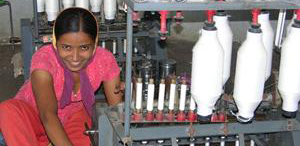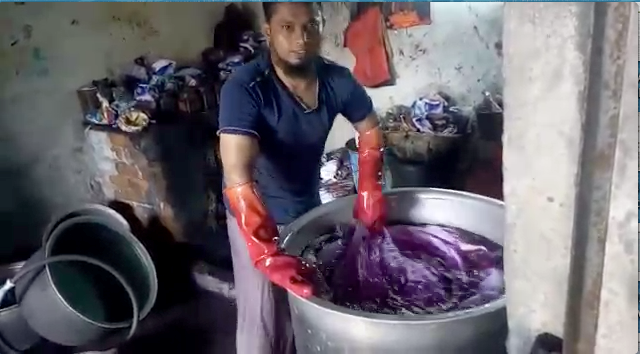
What is Zero Waste Week?
This week is Zero Waste Week, a fantastic opportunity for all of us as individuals and businesses to look at how much we throw away and to ask the question ‘where is ‘away’?’ What happens to what we discard? Can we do our bit to lessen the growing expanse of rubbish that is being dumped at sea or under ground at landfill sites?
Zero Waste Week was set up in 2008 by Rachelle Strauss. You can hear about what inspired her and her journey in This podcast interview with Jen Gale. The event has grown year on year and last year the #zerowasteweek hashtag on Twitter reached 20 million people worldwide. The name ‘Zero Waste’ is not meant to alarm you – every little change you make contributes to the overall reduction of rubbish – you really CAN make a difference.
How ‘Zero Waste’ are we?
As you know, at Where Does It Come From? our core ethos embraces traceability, ethical production and sustainable processes. Basically we endeavour to create our clothing using fair working practices, production techniques that don’t harm the environment plus we want to know everything we can about our supply chain and to share it all with you in our garment stories.
Minimal waste is key to the sustainability part of our ethos so we thought we’d share some of the things we do to minimise our environmental impact in the area of waste:
- 1. Power – Our clothes are made out of khadi, a cotton fabric that has been handwoven and handspun in co-operatives in India. The equipment is powered by people power (pedals or handles) and even sometimes the sun. This production uses virtually no carbon.
- 2. Water – Our fabrics are dyed by hand in large water vats. This technique uses approximately one fifth of the water used in more standard dyeing processes.
3. Fabric – Our production partners Moral Fibre Fabricsshare our sustainability values and ensure that the minimum amount of fabric is wasted during production. Design plays a key part too – for example our scarves are sized so that the fabric roll is equally split into 30 scarves.
4. Offcuts – We worked with millener Madge Hatter to create a range of brooches and hair accessories from offcuts from our denim Children’s Clothing range. These are nearly sold out but it is definitely something we’ll do again.
5. Preloved – We know that children grow and have designed our children’s clothes to last – with button elastic, adjustable poppers and roll up trouser legs. We encourage people to pass on their outgrown clothing to friends and family but if they can’t then they can send it back to us and we will sell it in our Pre-loved Shop so that it lives to play another day.
6. Recycled and Recyclable card and paper – We endeavour to do most correspondence electronically but our office paper is recycled and our leaflets and cards are printed on recycled paper too. Our double thickness postage envelopes and shirt boxes are recyclable or recycled and we wrap in tissue rather than plastic.
We re-use wherever possible – string, delivery boxes and even paper.
How could we be better?
We see Zero Waste as the destination that we are travelling towards. There are areas we would definitely like to improve and one of them is plastic. Our children’s clothes were designed with plastic buttons, something we are unlikely to repeat as they will end up in landfill. We’ve since designed our adult shirts have much more sustainable wooden buttons.
Plastic generally is an area for concern. When our shirts arrive from India they are packed in plastic to ensure they are not damaged during the journey. We send to retailers and wholesalers in plastic too and hope they recycle. This is something we will be looking to improve – perhaps exploring recycled or more biodegradable options.
Our supply chain is very co-located with the production taking place near the cotton farms. However shipping to the UK is done by courier, usually air freight. Looking at more environmentally friendly alternatives is high on the priority list.
The Way Forward
Looking at ways to reduce waste is a key part of living sustainably. If you can reduce what you buy, re-use what you already have rather than buying more, and recycle what you’ve finished with then you are going a long way towards a zero waste lifestyle. One small change – a bottle in the recycle bin rather than the dustbin, using a shopping bag rather than buying plastic bags at the shops, mending clothes rather than replacing – all of these things contribute towards cutting down what gets thrown to this mysterious place ‘away’. What small steps can you take that will take you towards the zero waste destination?
Published September 8, 2017 & Filed in Jo’s Soapbox,Where Does It Come From? Blog
Tags: #zerowastehour, be the change, carbon free, environment, ethical business, ethical clothes, ethical clothing brand uk, ethical fashion, green, khadi, sustainability, sustainable, traceable, Zero Waste





